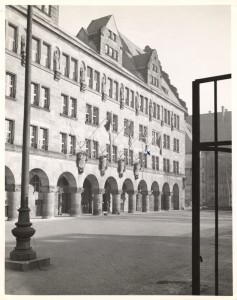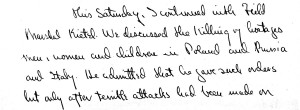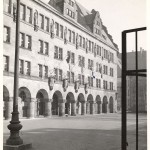Courtesy of this month’s guest blogger, Chris Dodd
This year marks the 70th anniversary of one of the most important achievements in the history of the United States, and indeed the world; the anniversary of triumph of justice and the rule of law over the desire for vengeance. I am talking, of course, about the Nuremberg War Tribunal that brought the atrocities of the Holocaust to light, and the men who perpetrated them to justice, following the end of World War II.
This was an incredible achievement for mankind. As Supreme Court Justice Robert Jackson said at the outset of the trial, “That four great nations, flushed with victory and stung with injury stay the hand of vengeance and voluntarily submit their captive enemies to the judgement of the law is one of the most significant tributes that Power has ever paid to Reason.” As a son of Thomas J. Dodd, this moment in human history has particular significance to me and my family. As a young, 38 year old lawyer, my father was asked to stand up and serve his country as a prosecutor with a solemn obligation to the victims and survivors of the Nazi atrocities to ensure that justice prevailed over inhumanity.




